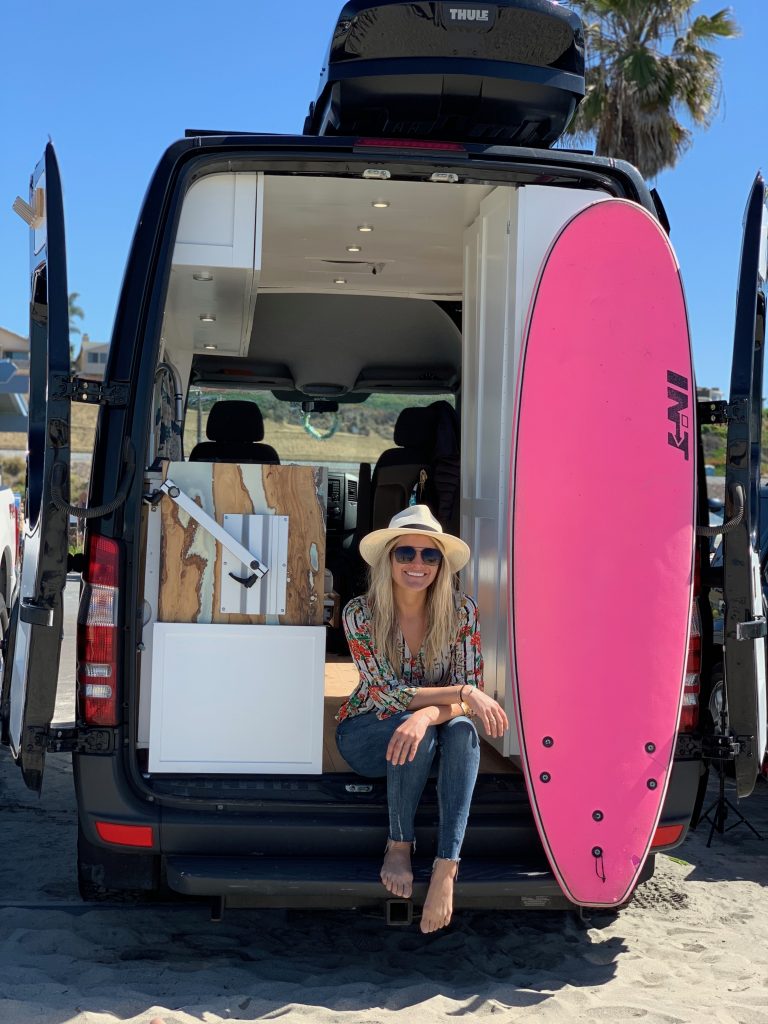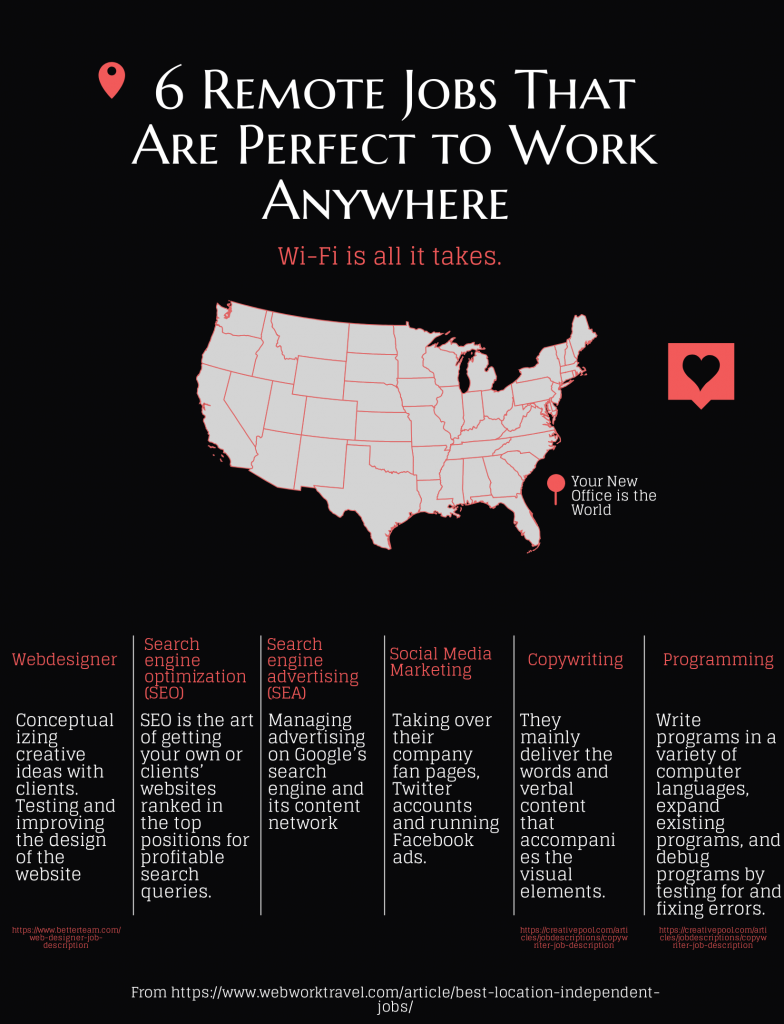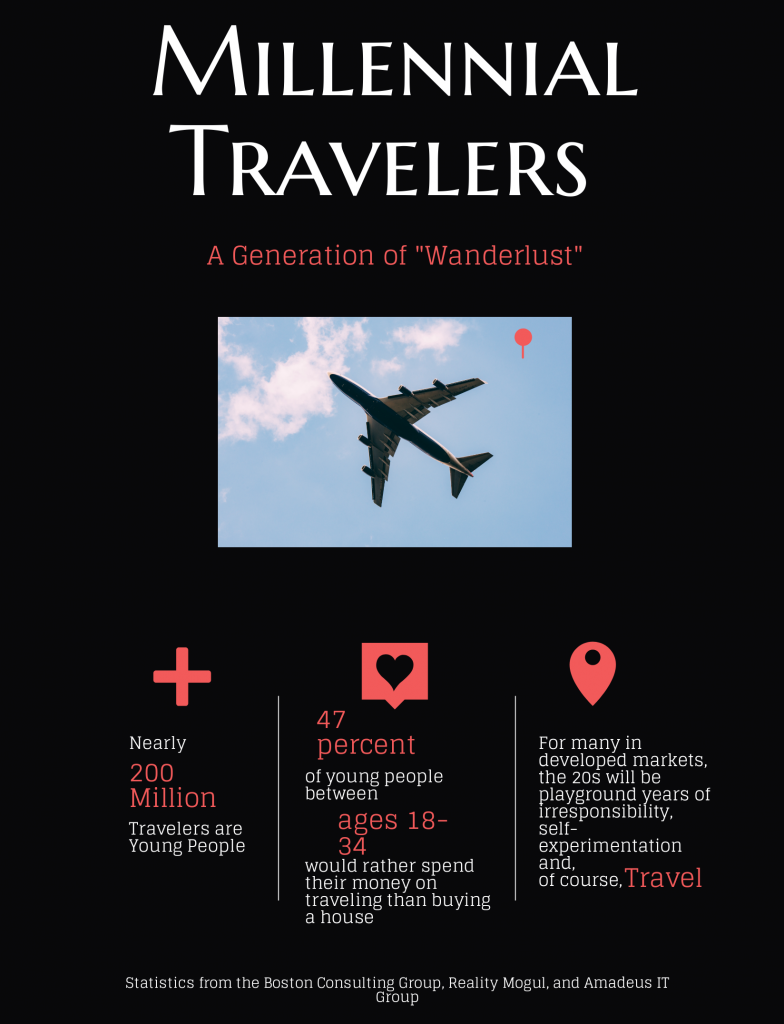By Rachel Sherman April 2019
“I think the American dream is actually getting out of America now. The American dream is traveling now. It’s having these different ways of life because we see that it’s possible. We see that we don’t have to conform and we don’t have to have one way, one narrow street. It’s knowing that you can do anything you set your mind to,” Liz Bryant.
Liz Bryant, 31-year-old, former NBC news reporter turned van-lifer, had a panic attack the night before her Saturday morning shift.
“One day I had this epiphany, like a bird’s eye view, driving on Interstate 5 to work from La Jolla, working and driving back home, going to bed and doing it all over again, and I just started crying,” Bryant said.
Bryant had recently returned from hiking the Pacific Crest Trail (PCT), and after going back to the grind of breaking news, working for NBC San Diego covering house fires, car crashes, and murders, she came to the conclusion this was no longer the life she wanted to live.
“I couldn’t breathe. I was just continuously crying, laying on the floor of my bedroom and called my mom. Like I had never experienced this in my life and I just said, I don’t want to go to work tomorrow and I don’t want to go to work ever again, actually,” Bryant said.
According to Bryant, being in nature and having a baseline of knowing that she didn’t have to always be “high strung,” “anxious” and “running around” was the turning point of her life. Although she received pushback from friends, family, and what society deems as “normal,” she quit her cooperate 9-5.
The burnout Bryant describes is real, and not uncommon among this generation. In a recent BuzzFeed Article, Anne Helen Petersen describes how millennials (people born between 1981 and 1996) became “the burnout generation.”
According to the World Economic Forum, research suggests that difficult environments and stressors, along with high expectations, create the conditions for traditional work burnout. But, when millennials feel emotionally exhausted, they are more likely than baby boomers to feel dissatisfied and want to leave their jobs.
The Old American Dream is “Old News”
Liz Bryant is one millennial choosing to combat the corporate lifestyle.
In this generation, people like Bryant are redefining their version of the American Dream, and this has nothing to do with the white picket fence, buying a house, having a family, and working a corporate 9-5 office job.
According to Amadeus IT Group, “at the same time, millennials will feel an easing off of pressure to conform to traditional life narratives, putting off responsibilities like leaving the family home, home ownership and starting a family until they are much older.”
Now, millennials are changing traditional work patterns because they value a career that caters towards the experience economy, allowing them more of a work-life balance, with flexibility to create their own schedule, and more opportunities to travel.
Millennials are fueling the “experience economy,” and Eventbrite’s nationwide research of millennials reveals this generation not only highly values experiences, but happiness isn’t as focused on career status.
While a corporate 9-5 might still be the aspirations of some, there are many more opportunities to combat the traditional work pattern, that most of the baby boomers followed.
Bryant does not think she could ever go back to the 9-5 lifestyle.
“It’s secure because they put you in a box and they give you these rules and they give you these positions and you don’t have to think as much. It’s all just, you’re a little robotic,” Bryant said.
Bryant has felt less pressure to conform to traditional life narratives because of modern technology and social media.
“Social media has shown up on scene and evolved the way we live”
Liz Bryant, Vanlifer
While scrolling though Instagram, Bryant actually found her salvation … #vanlife where she now freelances telling stories for her own video production company in her new and improved office, a converted Sprinter van.

“I just think it would be so depressing for me. I’m not meant to be there, I’m not meant to follow the rules. I meant to be wild. I meant to be out here and experiencing different ways of life and different settings,” Bryant said.
More millennials are Freelancing and Modern Technology is Changing the Game
With technology making it easier to do work anywhere, it’s no longer essential to be in the office at all times, to be productive.
According to Brie Reynolds, a career specialist with FlexJobs, the rise of freelancing and remote work in the past decade shows that workers are more “in-tune” with the future of work. As the Freelancing in America Survey shows, more than half (50.9 percent) of the U.S. population will be freelancing in 10 years.
Reynolds thinks that this comes from trends in “widespread remote-friendly technology,” as the millennial generation is known for being early adopters of emerging technology, and are ten percent more tech-oriented and collaborative than the norm, according to a workforce trends report from Dell and Intel.
Much like Bryant, who now has the freedom to work remotely, Jakiya Brown, 30-year-old, millennial marketer, travelpreneur, and boss lady of the blog The Traveling Fro, uses Wi-Fi to her advantage.
“For me, I felt like control was working in the corporate world. Because I could control my path, I could control in 5 years okay I’ll be a director. But, one of the beauties of the freedom is not having control and allowing the craziest things to come into your life and something that you probably never expected,” Brown said.
Jakiya Brown, @travelingfro
After quitting her full time, six figure salary job in New York City, Brown went from spending hours on luxury beauty brands to working remotely.
She now resides in Dakar, Senegal as a self-employed freelance marketing & social media strategy consultant and blogger.
Although Brown cannot say to skip the corporate experience all together, as she credits a lot of her skills and connections to her previous job, she enjoys the flexibility to work from her laptop, anywhere around the world.
“It’s so easy these days to get a Wi-Fi connection, figure it out and talk to people across the world,” Brown said.
Brown uses her location independence to experience different cultures and push herself out of her comfort zone, every time she steps outside the door.
“As you know people get burnt out, the 9-5 like the corporate life. Especially for people that are free, and that want to travel more. It kind of gets discouraging; its taxing and tiring, and you’re making money but at what expense? Also, is this the life that I want to be living?”
Jakiya Brown
Apart from “financial insecurity,” and the “highs and lows of entrepreneurship,” she enjoys the freedom to prioritize travel.

Millennials Value Travel and Use Remote Work to Do it
According to Jeff Fromm, expert on millennials and generation z, a major part of the millennial generation is growing their identity through culturally rich experiences and exploration of the unknown.
Millennials value travel, and fuel the experience economy even more by choosing to work location independent jobs.
Jackson Lebsack, 20-year-old, self-taught content creator and resident of Bozeman, Montana, is living the dream. He gets to travel the world for a living, and just finished Ski.com’s Epic Dream Job.
The quest has lead him all over the world, skiing from the summits of Austria to the backcountry of Verbier.
“One day I’m flying a helicopter and then on a paraglide and then it’s lunch time. Then it’s back to the editing room. So it depends, depends on the shoot, but you never know. It’s crazy,” Lebsack said.
This millennial videographer and photographer thinks our generation is changing the American dream with the idea that “we don’t want a picket fence and a 9 to 5, we can travel the world because we’ve got these crazy platforms like YouTube and Instagram,” Lebsack said.
Jim Clifton, Chairman & Chief Executive Officer, said millennials are from a different planet than previous generations because to baby boomers a job was just a job. Having a family and owning a home was the great American dream.
Now, 47 percent of young people between the ages of 18 and 34 would rather spend their money on traveling than buying a house, compared to only 26 percent of those ages 45 and older who said the same, according to a recent survey by Reality Mogul.

The New (Millennial) American Dream
For millennials prioritizing travel, like Amanda Machado, freelance writer, editor, and facilitator who has lived and worked around the world, combatting the traditional office job means re-defining the American Dream.
After teaching 9th grade English as a Teach for America corps member, Machado felt incredibly burnt out and recalls losing a sense of purpose. So, she quit her job and spent fifteen months backpacking South America, South Asia, Western Europe and the Western United States.
When Machado’s returned from her travels, she decided that she wasn’t going to be backpacking anymore but she also wasn’t going to be going back to a 9-5, healthcare, benefits type job.
She said this was disconcerting to her parents and really confusing because they have never seen that example, before.
According to Forbes, 43% of millennials plan to quit their job within 2 years, for reasons such as flexibility.
Forbes
For Machado, success for her is building a life where every day she does something that aligns with her values, and the flexibility to create her own schedule allows her this freedom.
(Watch her story below)
In a Ted Talk called The New American Dream, Courtney Martin criticizes how people have done backbends trying to fit in to the conventional way of working, for so long.
“The promise of a work world that is structured to actually fit our 21st century values, not some archaic idea about bringing home the bacon, is long overdue,” Martin said.
Courtney Martin, author, entrepreneur, and facilitator.
She discusses how others have carved a more “unconventional path” creating a patchwork of meaning and money with the flexibility to do what they need to do and according to Martin, she hears life coaches call this a “portfolio career.”
“Now, this means the nine-to-five no longer works for anyone. Punch clocks are becoming obsolete, as are career ladders. Whole industries are being born and dying every day. It’s all nonlinear from here,” Martin said.
Courtney Martin, in her ted talk “The new american dream”
The American dream is traveling now, and having these different ways of life because people see that it’s possible.
Liz Bryant said, “the American dream isn’t what it used to be. It’s not that I have to be a housewife. It’s not that I need to have children by the time I’m 30 or that I need to find someone who can provide for me and who can be a banker or a lawyer or a doctor, and fulfill this financial thing that we create in our head.”
Liz Bryant, Former NBC News Reporter turned Vanlifer
Millennials see that they don’t have to conform to any traditional standards of living and know they can do anything they set their mind to.